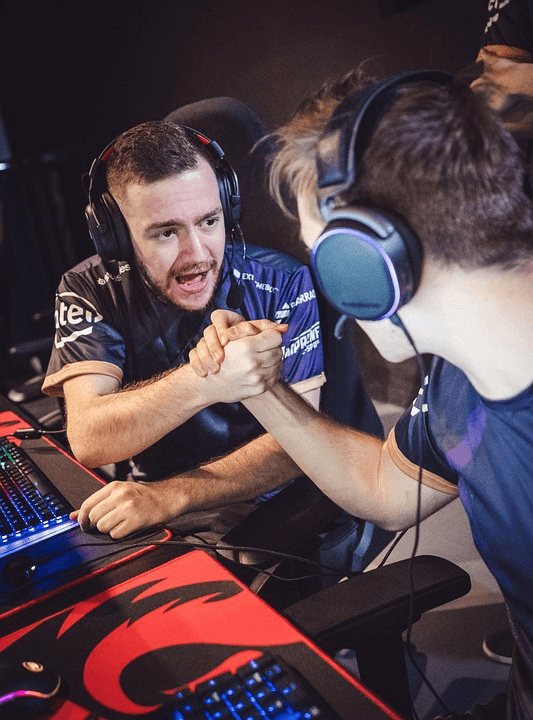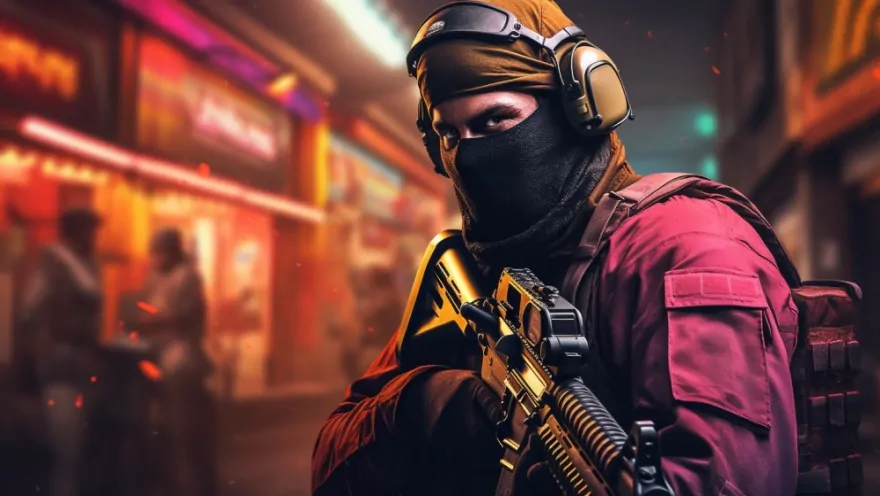Game theory isn’t just for economists and academics, it’s actively shaping the strategies and experiences of players in both esports and online gaming platforms. In Counter-Strike: Global Offensive (CS:GO), strategic decision-making can determine victory or defeat. Similarly, sweepstakes casinos rely on psychological patterns that echo game theory principles to keep players engaged. Understanding how risk and decision-making influence these environments reveals the shared logic behind both virtual battlefields and digital casinos.

Source: Pixabay
Strategic Choices and Risk in CS:GO
In the world of CS:GO, every round is a scenario filled with uncertainty, imperfect information, and high-stakes consequences. Game theory helps explain how players make decisions based on predicting opponents’ moves rather than simply reacting to events. From choosing whether to rush a bomb site or hold a defensive angle, the essence of CS:GO lies in anticipating strategies, a textbook example of a game-theoretic model known as the Nash Equilibrium.
Each player aims to choose an optimal response given what others might do. This mirrors the classic “prisoner’s dilemma” — where mutual cooperation might be ideal, but mistrust and uncertainty often lead to riskier, selfish choices. In CS:GO, this results in feints, strategic delays, and baiting maneuvers that reflect calculated risk-taking rooted in probabilistic reasoning.
Moreover, the game’s economy adds another layer of complexity. Teams must decide whether to “eco” (save money) or invest in better weapons, a choice balancing short-term sacrifices for long-term success. These economic strategies resemble the decision-making seen in gambling environments, where risk management and delayed gratification play a pivotal role.
Sweepstakes Casinos and the Illusion of Control
Sweepstakes casinos, while not offering traditional real-money gambling, employ risk dynamics that psychologically parallel those in competitive gaming. Instead of real cash wagers, players use virtual currency to play slots, table games, and other activities, but the design of these platforms still leans heavily on game theory and behavioral economics.
A key concept in sweepstakes models is the illusion of control, the belief that one’s choices impact random outcomes. When players select reels, make “strategic” bets, or participate in mini-games, they often feel in control, despite the fact that outcomes are algorithmically determined. This perception encourages repeated engagement, even in the face of frequent losses.
This mechanic ties directly into prospect theory, a psychological principle describing how people evaluate potential losses and gains. Players tend to overvalue small chances of big wins while underestimating the likelihood of losses, leading to risk-seeking behavior in low-probability scenarios. Sweepstakes platforms capitalize on this by offering frequent near-wins and visual cues that mimic progress, keeping users emotionally invested in outcomes they can’t truly influence.
Psychological Overlap: CS:GO Skins, Wagering, and Sweepstakes Models
The boundary between CS:GO and sweepstakes casinos becomes even blurrier with the presence of skins and loot boxes. Players in CS:GO often engage in skin gambling, betting virtual items of real-world value. These bets are decisions under uncertainty, similar to roulette or slot machines, with psychological consequences that mirror those found in sweepstakes platforms.
One striking similarity is the anticipation and reward cycle. Opening a rare skin or winning a sweepstakes round both trigger dopamine responses. These systems are engineered to encourage persistence through variable-ratio reinforcement, the same tactic used in traditional gambling to drive repeat behavior. Players are often unaware that their behavior is influenced by a loop of unpredictable reward schedules, deeply tied to game-theoretic insights.
To make informed decisions, players and consumers alike need to navigate these environments with clarity. That’s why consulting comprehensive sweepstakes casino reviews and comparisons is essential before engaging. These resources help break down the probabilities, game mechanics, and fairness of different platforms, giving users an analytical lens to apply game theory principles for smarter choices.
Answering the Question: What Does Game Theory Tell Us About Risk Psychology?
Ultimately, game theory in both CS:GO and sweepstakes casinos sheds light on how people perceive and manage risk. In CS:GO, rational decisions must be made under pressure, while constantly adapting to opponents’ unpredictable moves. Players are rewarded for thinking multiple steps ahead and considering the probabilistic implications of every choice.
In sweepstakes casinos, game theory reveals how platforms are designed to exploit irrational tendencies. Players believe they are making strategic decisions, but the system often favors emotional over logical reasoning. Understanding these mechanisms gives players the power to shift from reactive to reflective behavior, promoting healthier gaming habits.
The intersection of these two worlds highlights a shared truth: humans are not always rational agents. Game theory offers a framework to identify and correct these tendencies — whether you’re peeking a corner in CS:GO or spinning a virtual slot. Recognizing the psychological traps can transform the experience from blindly risky to strategically mindful.
